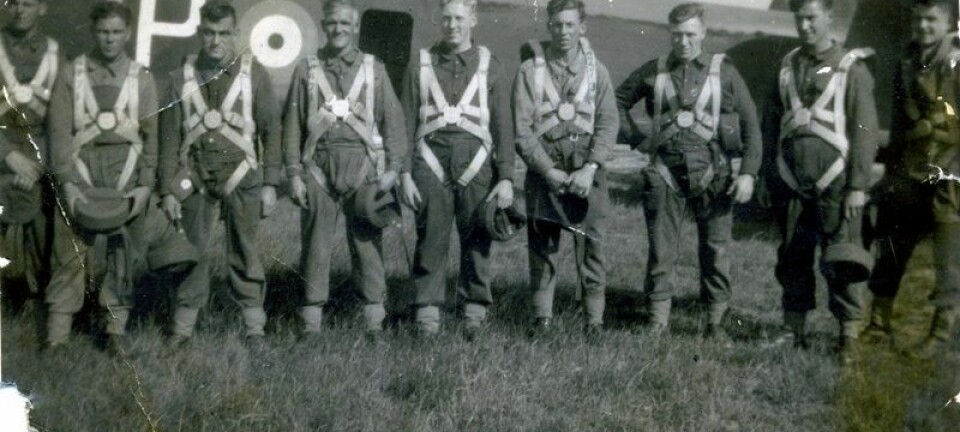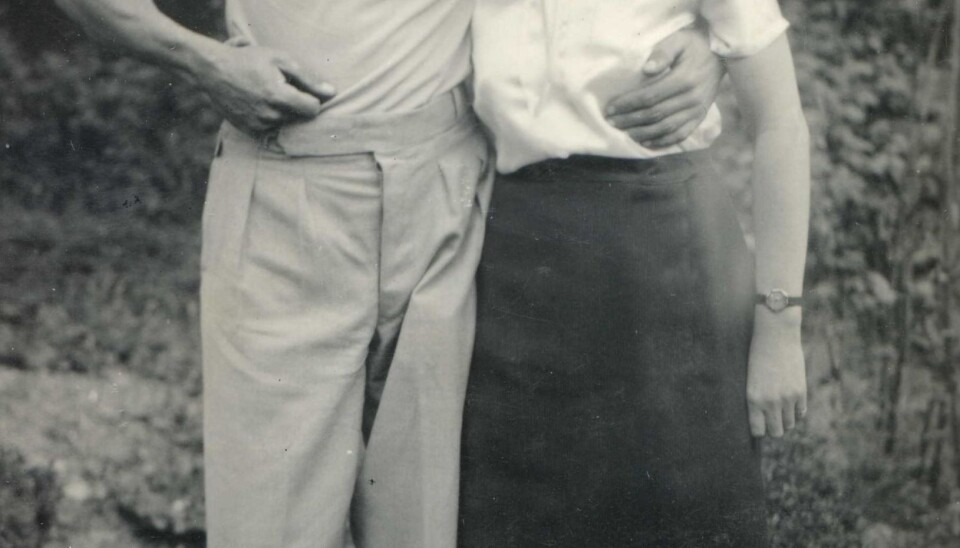
Putting a face on a secret of war
“Don’t worry too much darling if you don’t hear from me for a couple of weeks or so,” wrote Bill Bray the day before he left on Operation Freshman. Families fought for years to find out what had happened to their sons and husbands.
Denne artikkelen er over ti år gammel og kan inneholde utdatert informasjon.
My own dearest one,
Just a few lines in haste to let you know I am just off on a raid. I can’t say where but don’t worry too much darling if you don’t hear for a couple of weeks or so.
But I shall be back for Christmas so get that chicken ordered up. I am so sorry I can’t stop for more now but I am due on Parade in 5 mins. So cheerio for the present. Darling remember I love you & adore you. Don’t worry too much Dear because I shall be back so bye bye and god bless you.
From your ever loving Hubby,
Billy
The “raid” that Frederick William Bray was about to partake in was nothing less than an attempt at sabotaging the German occupied heavy water plant at the town Rjukan in Norway to prevent the Nazis from developing an atomic bomb.
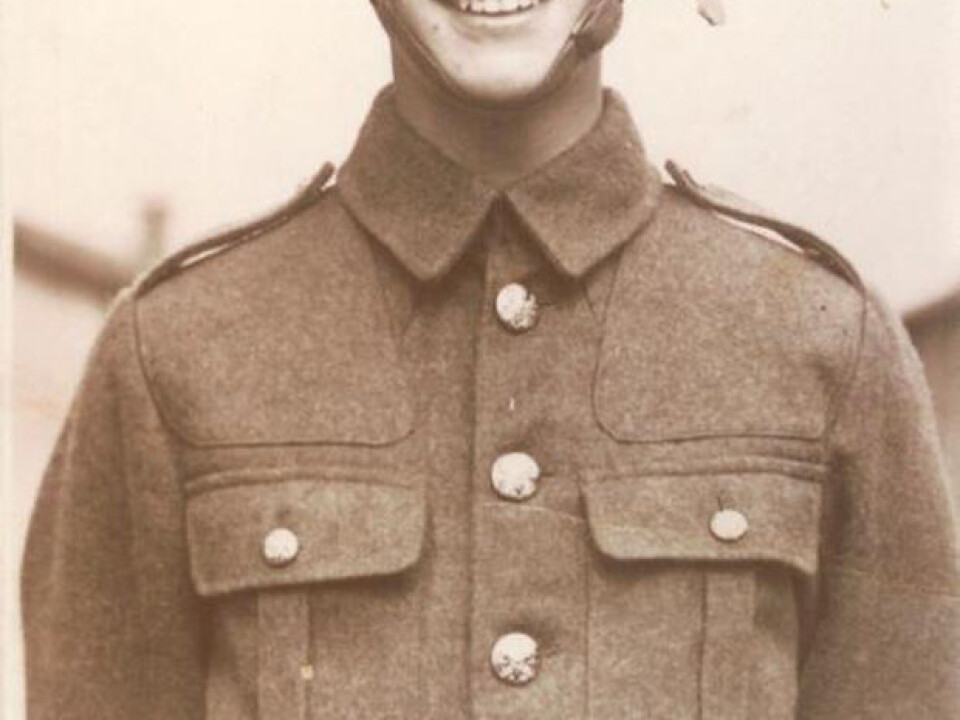
Contrary to the Norwegian Linge Company’s attack three months later, it was a total failure. The day before the surprise attack, on 19 November 1942, Bray sent these last words to his wife Lily Beatrice.
She was six months pregnant and waiting for him back home in Kent, England.
On the same evening he and 47 other young men took off in four airplanes from the runway outside the Scottish coastal town Wick, heading for a mission that just seven would survive. Thirty years would pass before British authorities made the details accessible to the public.
Collected letters, photos and stories
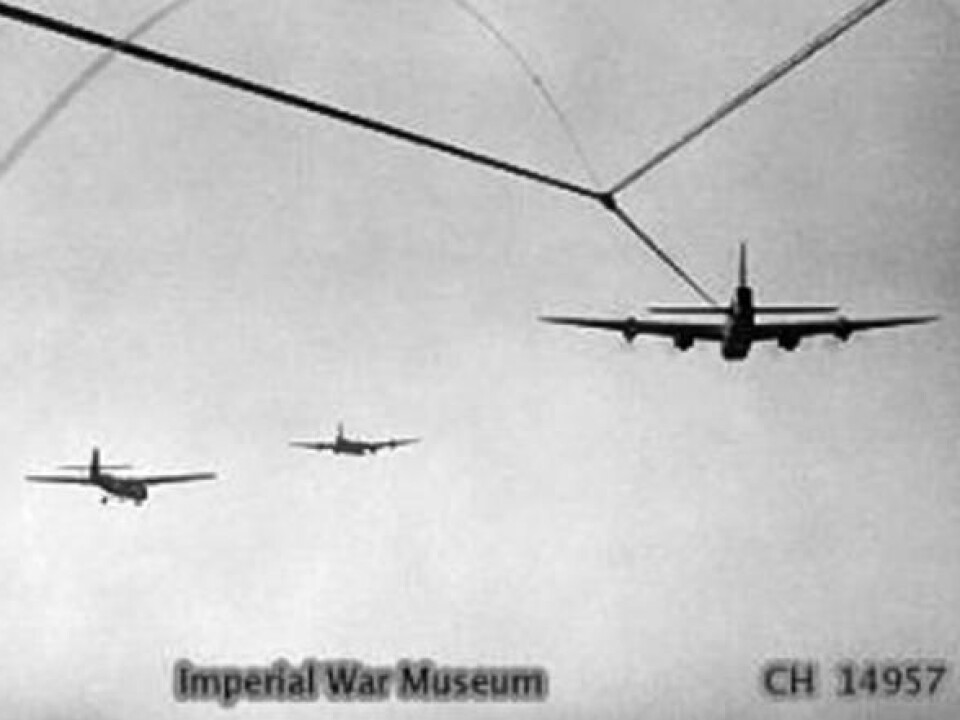
“It’s really touching seeing a letter written by a husband the same day he left on this mission. We interpret it as an attempt to reassure his wife, while his own apprehensions shine through. He reiterates that she needn’t fear for his return.”
So says Associate Professor Ion Drew at the University of Stavanger’s Department of Cultural Studies and Linguistics. He is one of the authors of a book on Operation Freshman that is being published this autumn.
“He couldn’t write to his wife about his uncertainty. This might have been a typical letter under such circumstances,” he says.
Drew and his colleagues have searched for the individuals behind the failed preliminary attempt at sabotaging the heavy water plant. Their work has included studies of documents in the British National Archives, which were confidential until 1972.
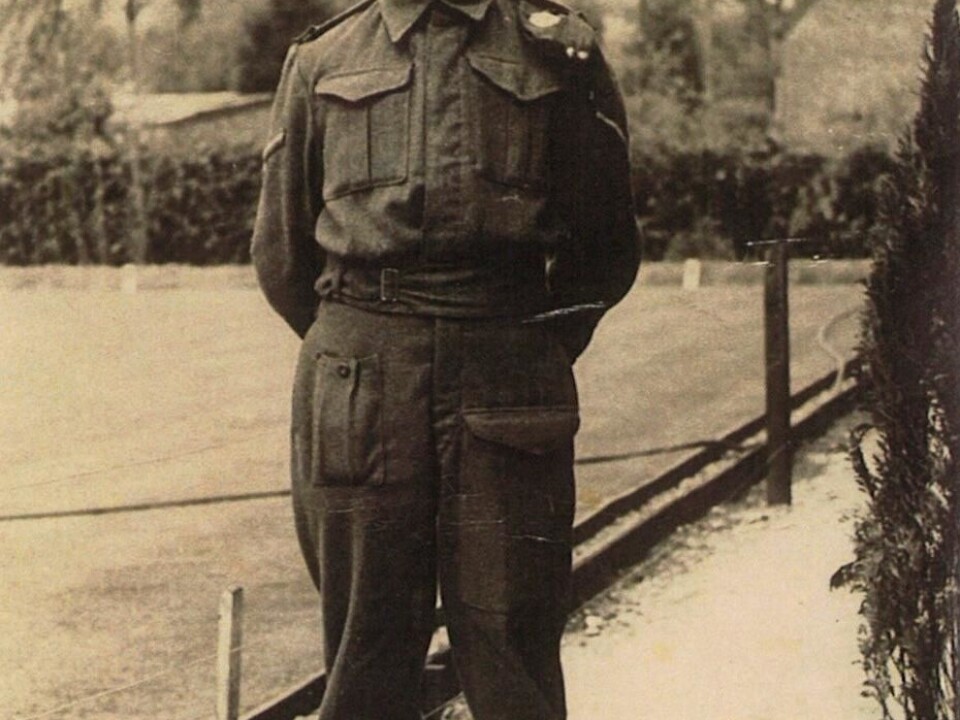
The researchers have also found many of the soldiers’ families, who have provided them with pictures, letters and stories about the young men.
Training and camaraderie
Among those picked for the top-secret mission was the then young corporal Syd Brittain. He participated in all the preparations for the raid, but a minor mishap kept him from flying out with his group that night.
The book by Drew and his colleagues contains formerly unpublished interviews with the now deceased Brittain, which included his recollections of training until the D-day of the operation.
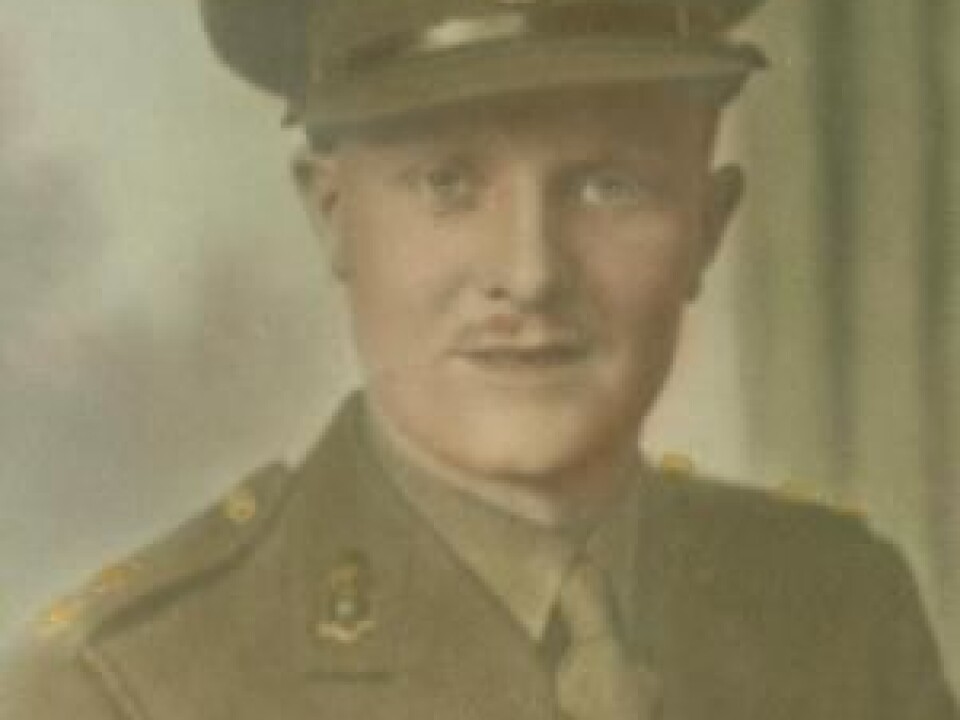
“It seems we tackled a complete mountain, one mountain, each day, up one side, down the other. We usually started at 8 a.m. and finished at dusk.”
During the weeks before the raid, the group trained in Wales and Scotland.
Although the commanders of the operation kept the target and the plans secret from the soldiers right up until the final days, in the course of the training period they began to fathom what kind of job they were expected to do, according to Brittain’s story.
They had to be perfectly fit and were taught sabotage in close combat, use of weapons and various technical skills.
“We were told nothing more of the target, just an intensive course in demolition procedures – more lectures, photographs, etc.
(…) We were, however, given at this point some idea of what equipment we had to obtain or destroy, a stone or metal or even glass container.”
Commando training
The young men were also taught various killing techniques. This made Brittain wonder what kind of operation they were being trained for and what their role would be.
“Breaking necks by the palm of a hand thrust under the chin, gouging eyes out, silent killing with a knife, the proper points of entry of a knife for immediate effect.
(…) It was my first impression that we were going on a mission that could only be described as clandestine and we really ought to be called spies, saboteurs, not soldiers.”
Life changed in an instant
Then in the fourth week something happened that decided the future of Syd Brittain. He explains it in his own words:
“We were out marching on Bulford Hill. Simkins looked around and commented on a large American smoking a cigar, sat on the side of the road. I turned and twisted my ankle.”
This would be a literal turning point in Brittain’s life. His ankle didn’t heal in time and he was taken out of the troop.
He would not die young together with the rest – thanks to a cigar-smoking American.
The last day
Brittain was stricken from the roster but the 48 others were to be sent to Rjukan in Norway’s Telemark County. For security reasons, Brittain was kept on base with his sequestered comrades in arms right up till the day they left.
The seven who made it back to Scotland after the unsuccessful mission have later said that toward the end many of the soldiers felt their days were numbered, according to Drew.
Syd Brittain spent the evening before the raid together with three others who would be leaving the next day.
“On the final evening, ‘the lively ones’, myself, Simkins, Jaques, Campbell, went to the NAAFI. We had a sit down and a beer.”
Consoled by the others
Then the day of the operation dawned. The 24-year-old lieutenant Alexander Charles Allen had been involved in Operation Freshman from the very start of preparations. He was given command of Bill Bray and the others.
After the men had tea, and Bray had written to his beloved Lily, they started to sling their equipment into the gliders. Brittain helped them – he was really disappointed about being left behind at the airbase.
“ (…) They walked across to the glider and climbed aboard. I remember they looked just like a group of schoolboys.
Allen spoke to me: ‘Don’t worry Brittain, you will go on to do better things yet’, or words to that effect’” tells Brittain.
Together with the wish to do what he was trained for, Ion Drew thinks Brittain’s disappointment was based on the strong camaraderie within the group.
“Later he said he wished he’d perished along with the rest. It must have been quite a burden knowing that he’d gotten off, while the others didn’t” says Drew.
Families fight to know
The consequences of 19 November 1942 continued well into the present, long after two of the aircraft crashed in Norway, with a total of 41 young men perishing in a hazardous attempt to get to Rjukan and save the world from Adolf Hitler.
Fathers, mothers, siblings and partners of the men strived to find out what had happened even though the British authorities kept a lid on the unusual and risky operation until 1972.
Frustrated by a lack of information
Ion Drew and his colleagues found a letter to the War Department in the National Archives which they think is particularly expressive of the frustration and uncertainty the families of the deceased felt in the years after Operation Freshman.
The letter was sent by Marjorie Pendlebury, wife of Ernest Pendlebury (photo above). Here is a portion of the letter that the authors included in the book:
“Our boys are sent on these suicide raids and we here at home naturally seek information from the War Office but all we get is sympathy and I’m afraid this doesn’t help anyone very much..”
War in several generations
Marjorie Pendlebury was not the only one kept in the dark. Another letter was written by the father of the then 24-year-old Alexander Charles Allen, to a Major J. N. Chivers.
Alexander Allen was the lieutenant who had tried to console Syd Brittain on the tarmac at Wick.
Horace Charles Allen, who himself had served in the WWI, criticizes the authorities here for not showing sufficient appreciation for the young men who sacrificed their lives in the war:
“I am writing again to the War Office asking if they have forgotten that 12 months ago they would let me know details of Alec’s death, but of course I shall not divulge anything that I have heard from you.
Having served myself in Gallipoli 1915 and knowing the futility of war and how little thoughts of good men’s lives and how quickly they are forgotten, it makes me very bitter.”
“As a father for a commanding officer of the group he must have felt a strong obligation to the families of those who had served under his son,” writes Drew and the fellow authors of the book.
Inconceivable today
Several of the families lived in doubt right up into the 1970s and ‘80s and even longer. Many died without ever getting an explanation or they had to make do with the scraps of information that emerged in the newspapers.
Ernest Pendlebury’s family thought until a few years ago that he had been shot down by the Germans. Actually he died from injuries sustained in the air crash.
“We don’t know whether the relatives received scant information because the operation was secret or whether the authorities were covering up the story because it was a fiasco,” says Drew.
He thinks that today it would be inconceivable for the families of the missing crew of such a large operation to have to strive for years to find out what happened.
“For instance there is lots of attention given to the casualties in Afghanistan, and it helps somewhat for families to know that a whole nation is sharing in their sorrow.
“After Operation Freshman each individual mother and father and family had to deal with their sorrow individually because of the uncertainty. The world was different then but people still go off to war,” says Ion Drew.
------------------------------------------------------
Read the article in Norwegian at forskning.no
Translated by: Glenn Ostling







